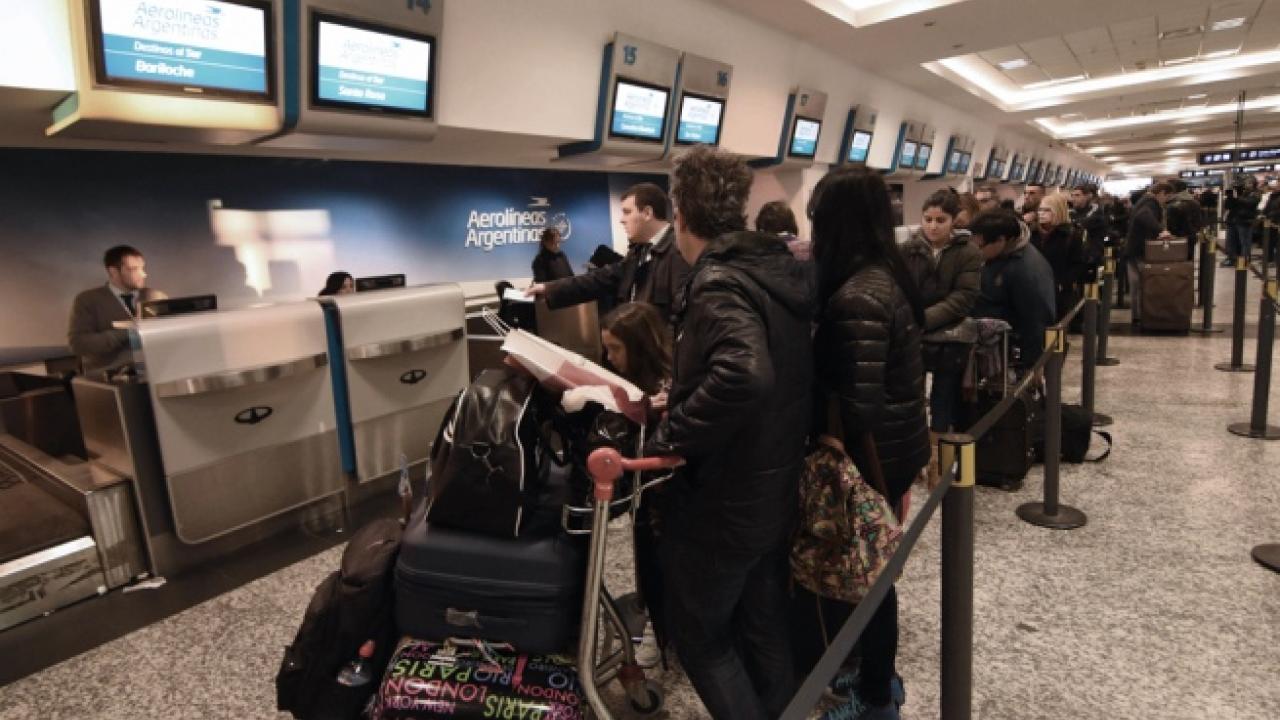
It was the result of the failure of negotiations between the airline unions and the government of Javier Milei when they failed to reverse the proposal for a 12% salary increase offered by the companies Aerolíneas Argentinas and Intercargo on February 23.
The month ends in a state of shock for Argentina: this Wednesday the 28th, the country woke up to a strike by aeronautical workers that has forced hundreds of flights to be rescheduled nationwide. The measure was called by the aeronautical unions Aeronautical Personnel Association (APA), Airline Pilots Association (APLA) and the Union of Senior and Professional Personnel of Aerocommercial Companies (UPSA). It should be noted that the affected flights are those that go to the three main cities in the country: Buenos Aires, Córdoba and Rosario.
This episode is the result of the failure of negotiations between the airline unions and the government of Javier Milei when they failed to reverse the proposal for a 12% salary increase offered by the companies Aerolíneas Argentinas and Intercargo on February 23. After the failed meeting, the unions ratified the call for a general strike for 24 hours and quickly pointed to the Minister of Economy Luis Caputo as the main culprit.
THE REASONS FOR UNEMPLOYMENT
“There was an agreement in principle so that aeronautical workers would receive a 16% salary increase this month and another 12% in March, and it was almost agreed with Labor, but Caputo intervened and everything came to nothing. This shows who runs the country and that there are no valid interlocutors for the labor movement,” stated the union representatives of the three plaintiff entities.
Along the same lines, APLA spokesperson Juan Pablo Mazzieri told Radio Miter that the strike was organized for “salary reasons,” because airline workers are “70 points below the inflationary gap.” As recalled, despite the fact that the inflationary rise has moderated, the price indices continue to be in a dire situation for Argentina. The country closed last year with 211.4% annual inflation, the highest since the last hyperinflation that affected the country in 1990, during the first government of Carlos Menem.
Given the imminence of the general strike, the state-owned Aerolíneas Argentinas announced that 311 flights would be suspended, which was estimated to affect nearly 24,000 passengers. Quickly, important private airlines such as GOL and Latam canceled all their flights from Brazil to Argentina. While at the Jorge Chávez Airport (Peru) and Arturo Merino Benítez Airport (Santiago de Chile) all flights to the River Plate country were canceled until further notice.
Meanwhile, other actors have been luckier. For example, FlyBondi, a low-cost airline , managed to operate in Ezeiza. This is because it does not resort to the services of the two main ground handling companies that organize the strike. From the other side, Latam announced offers of alternatives to passengers such as date changes and free flights. Likewise, those affected were able to request free refunds for all unused tickets.
THE ENEMITY BETWEEN THE GOVERNMENT AND THE UNIONS
Given its magnitude, the strike has catalyzed reactions at the international level: the Latin American and Caribbean Air Transport Association (ALTA) recognized the right of airline workers to protest. However, the organization emphasized the need to defend the freedom of movement of citizens.
For its part, the Milei government reinforced the presence of the Airport Security Police (PSA) at the Ezeiza and Jorge Newbery airports (Aeroparque) due to the possibility of workers organizing protests. During the day, the Minister of Security, Patricia Bullrich, condemned the union actions on her X account.
“Those who believe they own the street tried to block the entrance to Aeroparque. I gave the express order that free movement be maintained in all airports in the country through the PSA and it is already happening. The Argentina of tightening is over. We are not going to take even a step back with those who intend to stop Argentina,” said the former presidential candidate of Together for Change.
However, Marcelo Uhrich, the Press Secretary of UPSA, denied the minister, arguing that there was never any demonstration at Argentina's airports. He even assured that it was the PSA agents who restricted the entry of passengers to the Aeroparque facilities. Despite the disparity of both versions, one issue is clear: the negotiation for the salary agreement between the unions and the Ministry of Labor remains pending.
THE POSSIBILITY OF A NEW GENERAL STOP
Milei's recent announcement to promote his liberal economic program through executive decrees in the absence of parliamentary support could leave the way open for new large-scale demonstrations. Just as happened on January 24, when the aeronautical unions joined the general strike of the General Confederation of Labor (CGT) that was organized in protest of the Omnibus Law and the DNU of December.
It should be noted that on February 16, the CGT opened the possibility of declaring a new national strike due to the failure of the agreement to update the minimum wage between the government, unions and employers. This Tuesday the 27th, the co-secretary general of the largest union in Argentina, Pablo Moyano, confirmed that eventually there would be another large general strike, although they will talk first with the leadership of the labor union. Moyano accused the Milei administration of governing only for the business sector.
“It is proven that the caste is the workers, the retirees, the State companies, and from the CGT we are not going to allow it,” declared the unionist within the framework of a press conference given by Axel Kicillof, Peronist governor of Buenos Aires. , in the city of La Plata, according to Télam .









